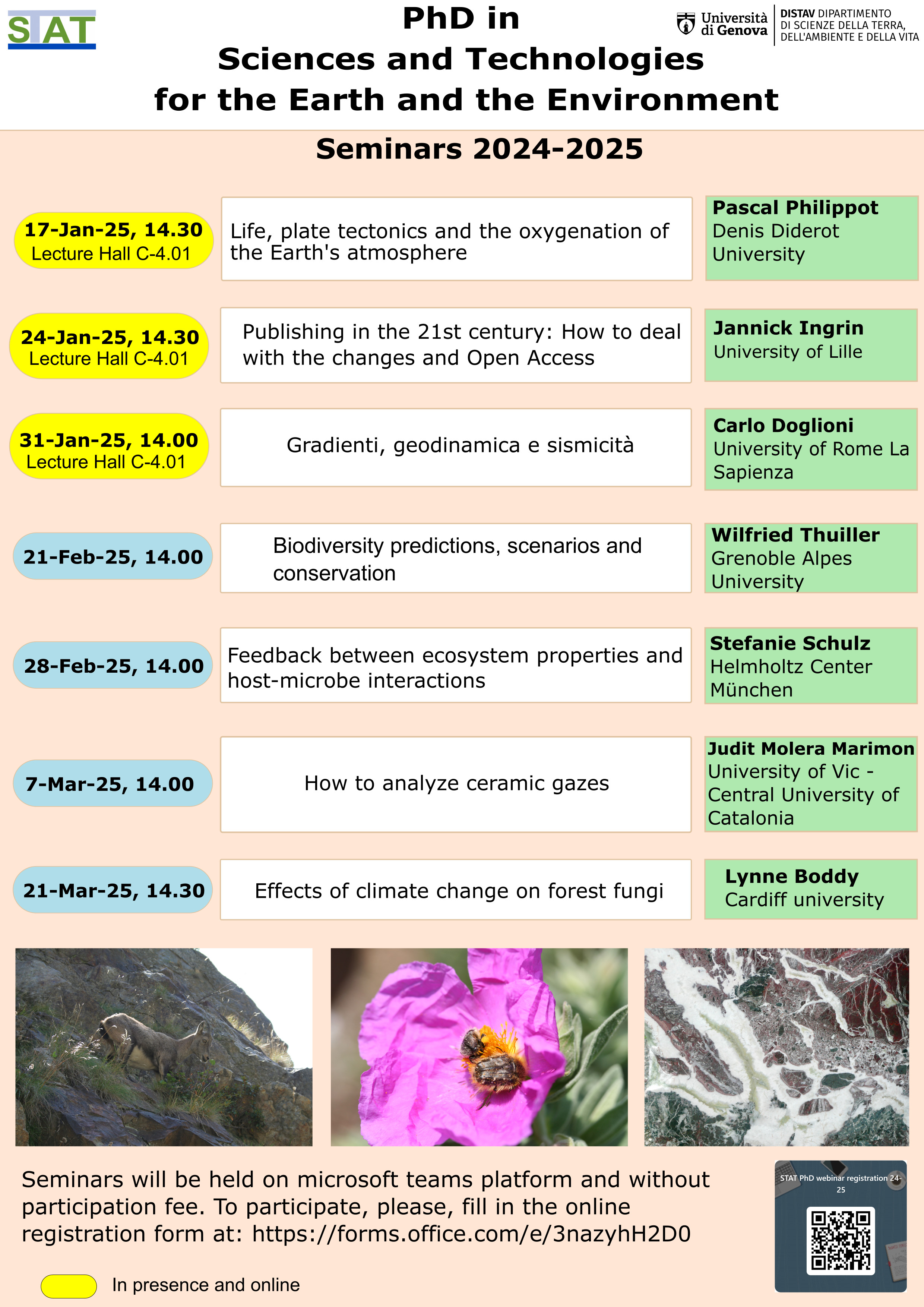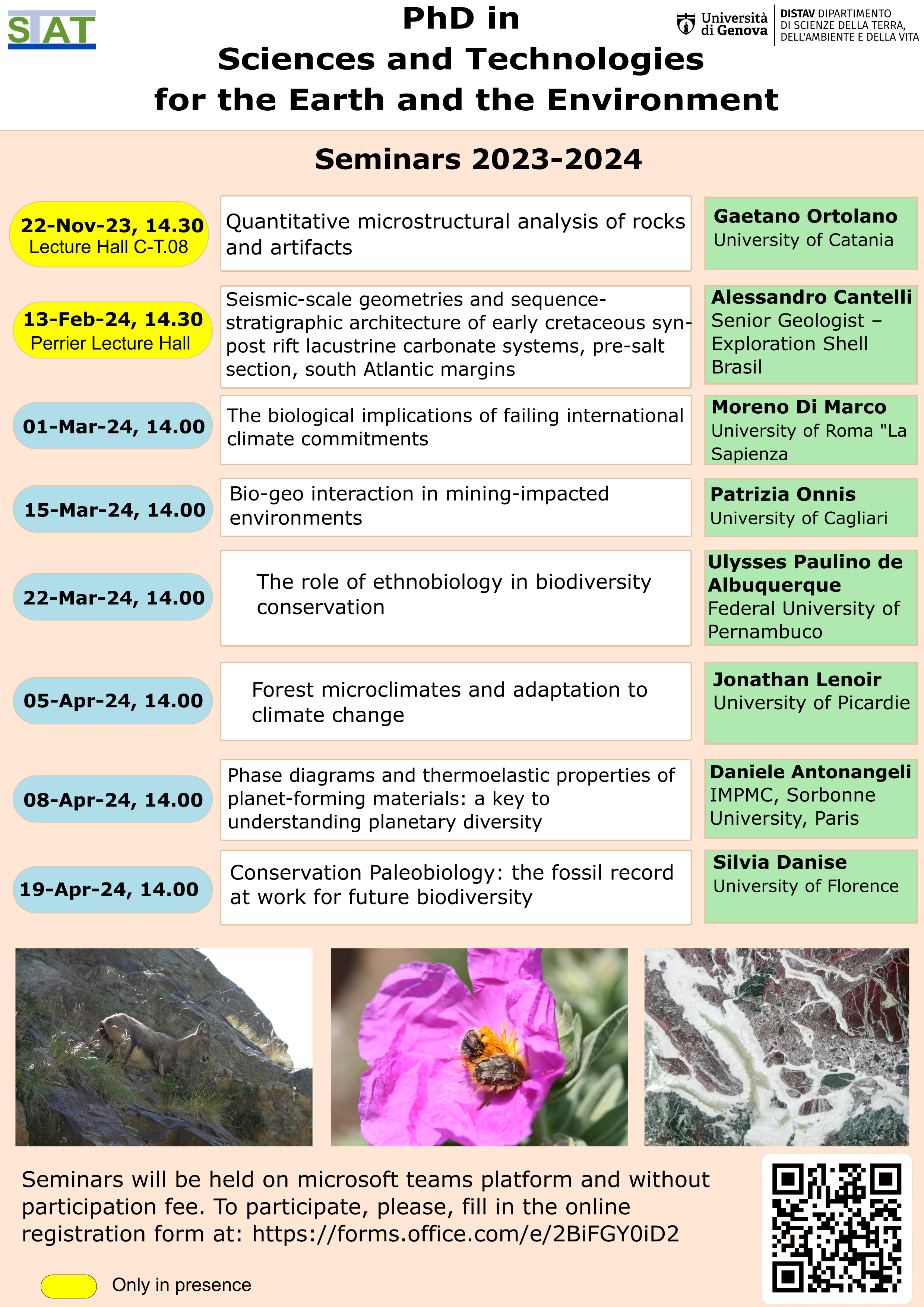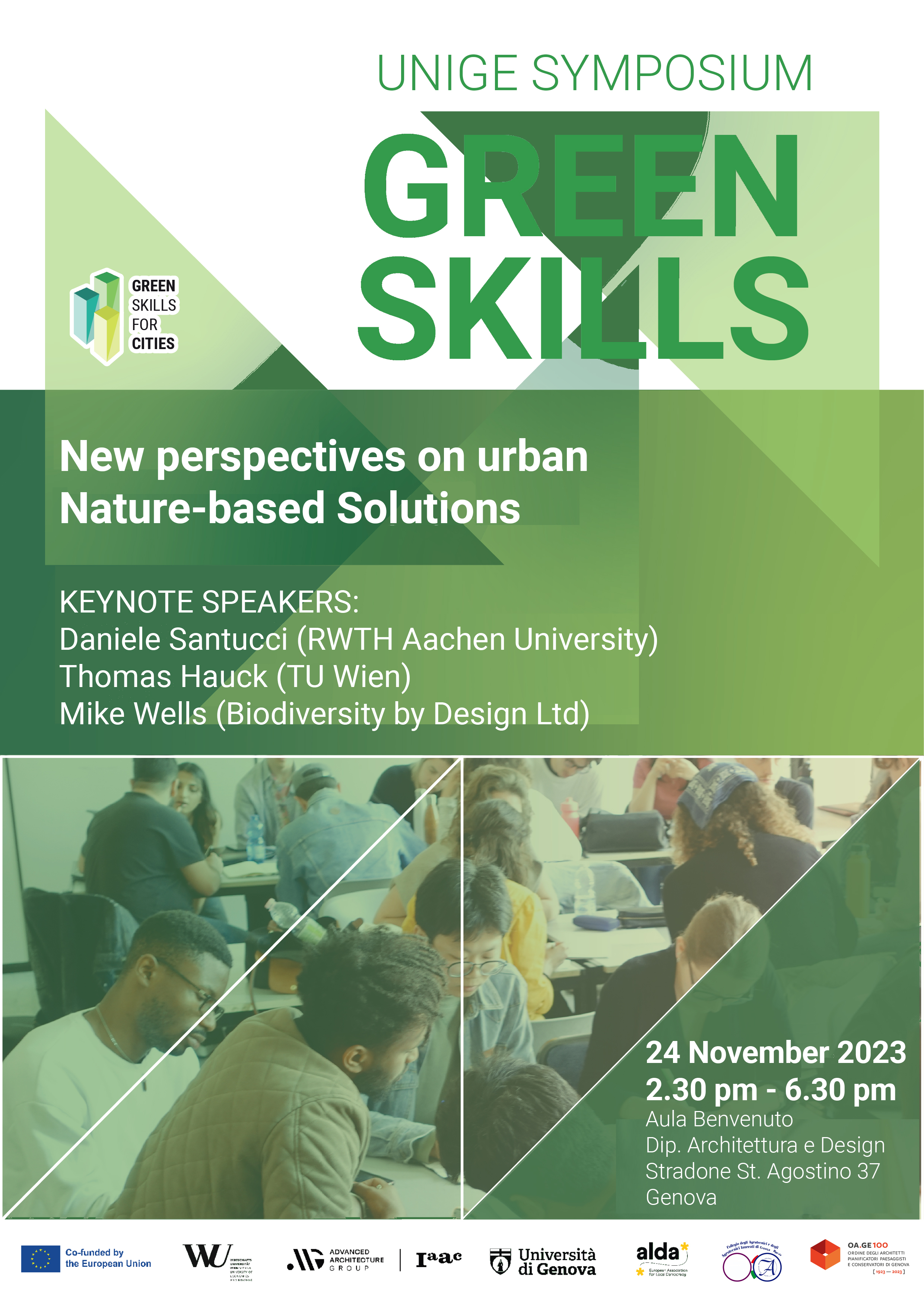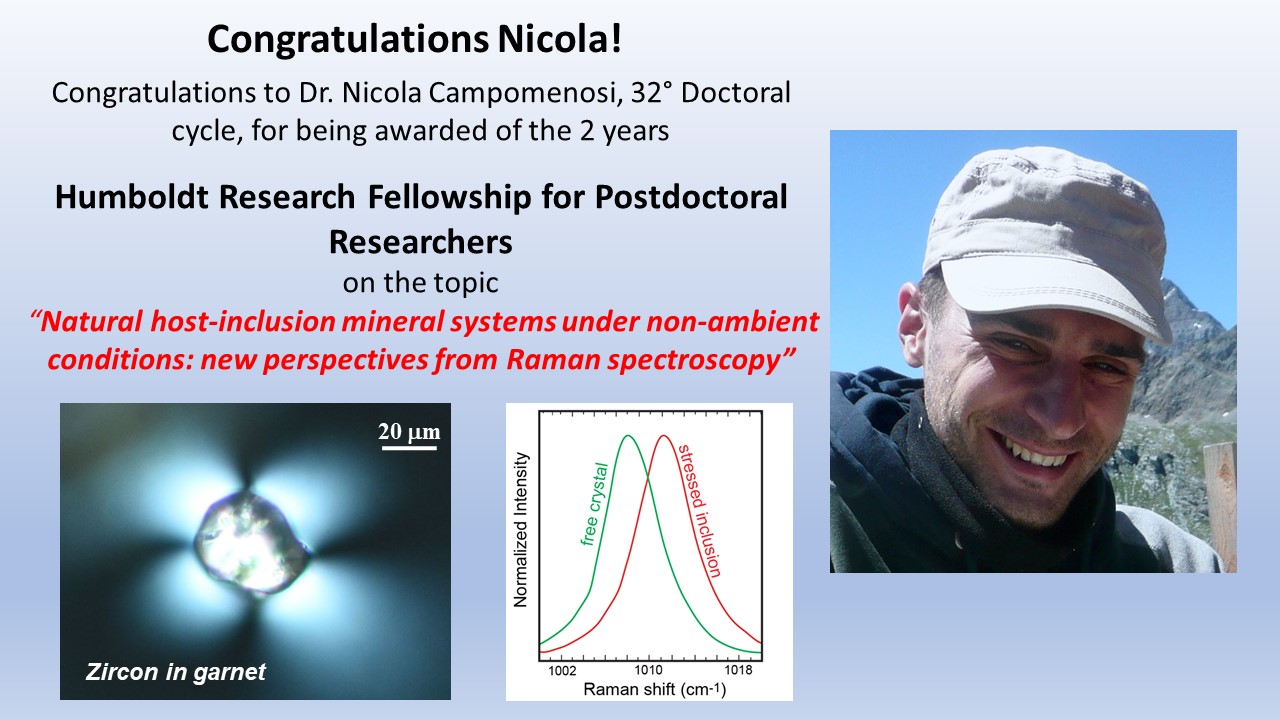The research themes pertaining to the Earth Science Doctorate School aim at defining and modelling the endogenous and exogenous processes shaping planet Earth by integrating a vast spectrum of geoscience disciplines (structural geology, stratigraphy, geomorphology, mineralogy, geochemistry, petrology, paleontology, geophysics). The primary goal is training the forthcoming generations of geoscientists and professional geologists to a correct understanding and quantitative modelling of key processes ruling dynamics of the Earth's crust and mantle, as well as the complex interplay between lithosphere, hydrosphere and biosphere. Our PhD students are trained to the most advanced analytical techniques and are engaged in well-established scientific collaborations with top scientific national and international institutions and research laboratories.
The major research themes deal with the study and quantitative modelling of:
- The chemical and tectonic evolution of the lithosphere in convergent and divergent plate margins, the genesis of the oceanic lithosphere and its consumption at subduction zones;
- The processes shaping morphology of the Earth's surface in coastal areas, alluvial planes and mountain belts, by monitoring of dynamic changes and assessing the related hazards;
- The genesis, prospection and use of geo-resources (water, ore deposits) and of energy reservoirs (geothermal and oil fields), as well as management of waste disposals;
- The evaluation and mitigation of geological and environmental hazards caused by natural and anthropogenic events;
- Management and planning of land use in anthropic areas;
- Conservation of the naturalistic landscape, archaeological / environmental heritage and cultural heritage;
- The behaviour of geo-materials at changing temperatures and pressures as a contribution to scientific issues and applied research;
- Rock and mineral interaction with the biosphere and consequent processes of release, transport and sequestration of organic and inorganic chemical species.
Coordinator: Prof. Marco Scambelluri (E-mail: marco.scambelluri@dipteris.unige.it)




